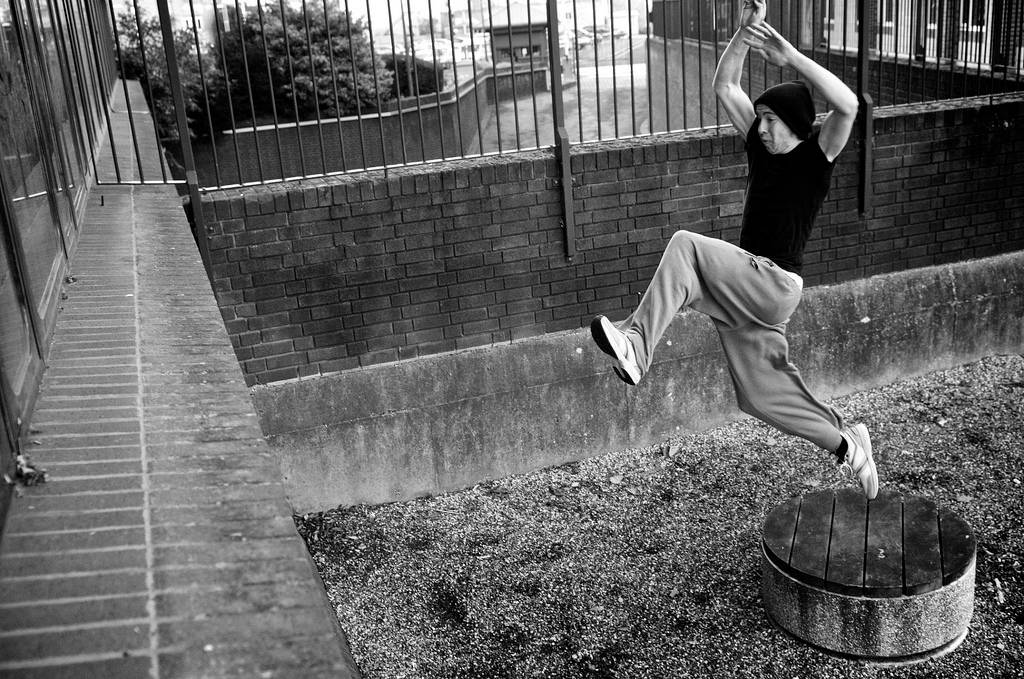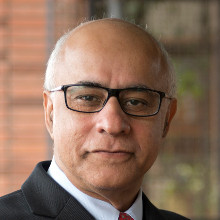[Photograph Parkour Foundation Winter by THOR under Creative Commons]
I am at a point in life where my career is on a good footing. Everybody at work loves me, the promoters included. My family is well set and all I wanted to do for them is in place. On the face of it, I couldn't be in a prettier place. But I am unhappy. I think entrepreneurship is the way to go. But I don't know if I'm cut out for it. Quite honestly, I am clueless. All I know is I am moving out of my job. My boss and wife think I am loony. What is the matter with me?
There are two themes here. Even as they may sometimes be intertwined, it is a good idea to take them up one by one. The first has to do with “boredom” while everything is going well for you. The second is “entrepreneurship”. Let us take up the first one first.
You may do yourself a great favour, analyzing and if needed, correcting the reason you get bored. Is this a recurring theme in your life? Do you get tired of good things as somewhat of a personality trait? If so, you may even be suffering from the curse of material wellbeing and living a life that is probably self-centred. While everyone seems to like you or even love you as you say, you may be living in a false world where your ability to deliver is seemingly keeping everyone in awe, admiration and love. That awe, admiration and love may be actually for the moolah you make than it is for you. Deep inside, you may be aware of this dichotomy; this could be the wellspring of your sense of emptiness. If this sounds like you, get up, take a long walk and have a conversation with yourself. For heaven’s sake, don’t start a company. What if you get bored with that as well?
Most people who have made it good as entrepreneurs have responded to an inner call even as they may not express it in those words and may not even be aware of that fact. In starting an enterprise, they were acting in a manner that was a response to a higher call. There was a sense of purpose, a longing of some kind, very similar to a woman who wants to become a mother. When seized with it, an individual would go to any length, be okay with the countless ups and downs, to stick to the many uncomfortable consequences that may follow. These are people who work in a “future-backward” manner; they have an apparition that beckons them to it.
Then there are instances where people don’t start in a future-backward manner; they have taken to the path less travelled because the usual paths were suddenly declared closed to them. Left with no other options, and instead of just sitting out there cursing circumstances and bemoaning fate, they took things in their own hands. From that point on, there was no looking back. For example, I know of people who didn’t get a job they wanted in their 20s or someone else who was given the pink slip at the age of 40 and in both cases, these people chose to start off on their own. These are people who are acting in what I call a “present-forward” manner.
The two paradigms I cite here are obviously over simplified but they help us understand things in a certain perspective. In reality, why people start a business, what the raison d'être may be, is unique. That said, with both these paradigms, where I am really taking you to is the realization that boredom wasn’t the starting point in either case.
On that point, I really want to ask you one question: how old are you? If you are in your midlife, the chances of boredom are very high; in high achievers, it can set in as early as their late 30s. This is an acute period marked by loss of interest in things that once made you happy: your job, friends, a sport you loved, sometimes even your own family.
This is a rite of passage. It is a period of transition. Just as you had to once go through your teens. Today you may be going through the second major transition in your life. Experts say, in your 20s, you want to be a certain someone. In your 30s you are that someone. But in your 40s, you begin a period of acute transition from being someone you are, to someone you are meant to be.
The way to deal with this period of transition is to be aware of it, to prepare for it. It is a period of uncertainty. There are many things you could do to cope: ask for a job rotation in your organization, pick up a new interest, learn to play an active sport, get involved in social work that takes your mind off yourself and makes you outward bound. Just as there was adulthood awaiting you after your passage through your teen years, there is another phase waiting for you after you navigate your 40s. This may well be the defining years of your professional and personal life. It is better that you deal with this important and inevitable rite of passage whose abject manifestation is boredom without thinking of jumping into entrepreneurship.
In any case, entrepreneurship is like running a marathon. Have you ever seen a runner yawn at the starting point of the race?
If you have any questions for Subroto Bagchi, mail us as askbagchi@foundingfuel.com


